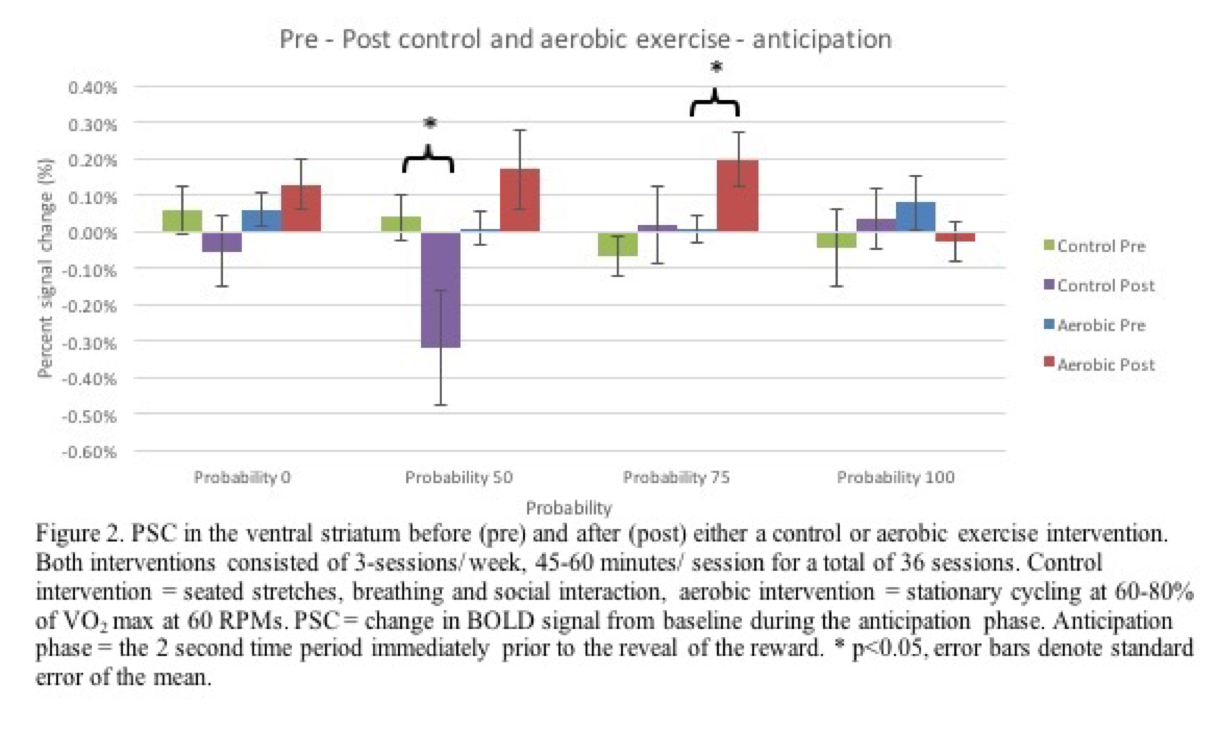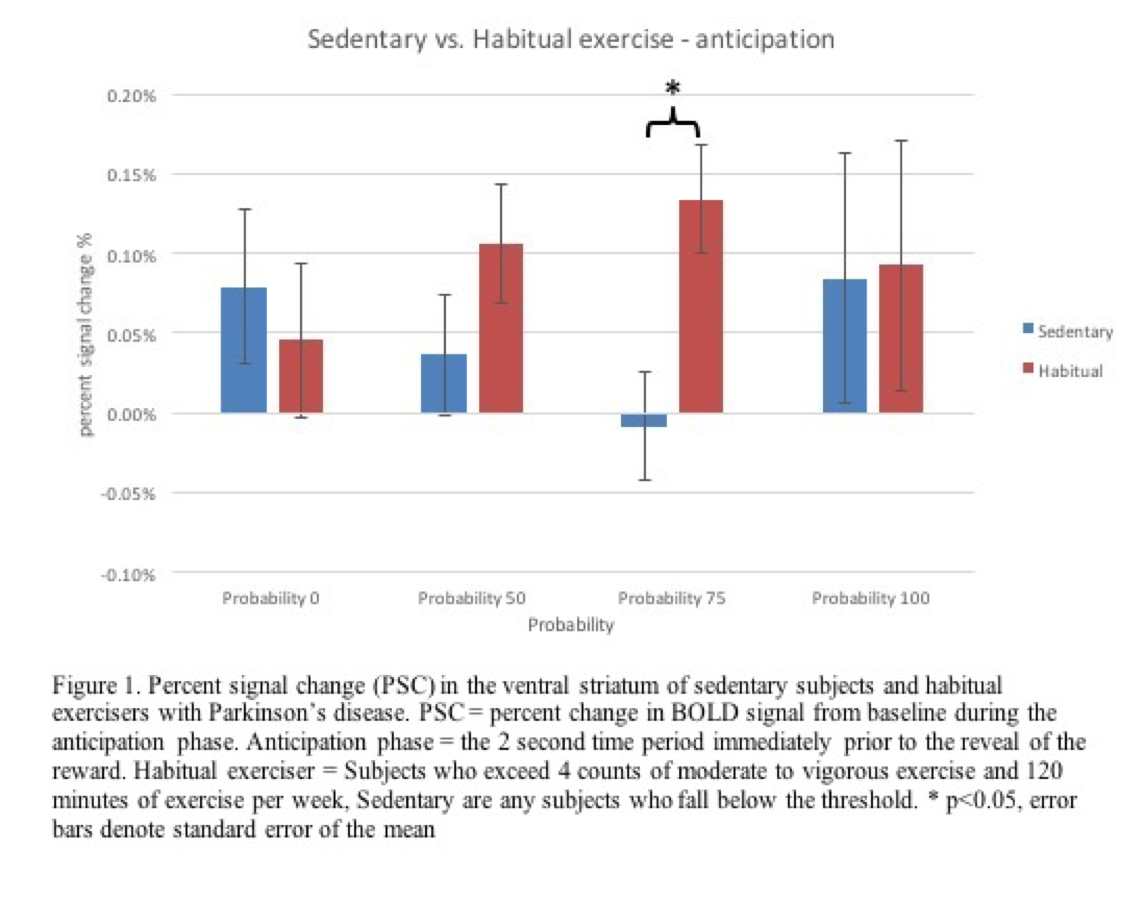Session Information
Date: Thursday, June 8, 2017
Session Title: Parkinson's Disease: Neuroimaging And Neurophysiology
Session Time: 1:15pm-2:45pm
Location: Exhibit Hall C
Objective: To investigate the effects of exercise on reward circuitry in Parkinson’s disease (PD).
Background: The benefits of exercise in PD have been linked to enhanced dopamine (DA) transmission in the striatum. It is hypothesized that exercise induced changes in DA function may also alter reward signaling in the ventral striatum (VS).
Methods: We examined VS activity during reward anticipation in an fMRI monetary incentive task. Subjects were asked to select 1 of 4 cards during a trial. Each block (20 trials), had a different probability of reward 0, 50, 75, 100%. For each successful choice the subject received $0.50. Percent signal change of the blood oxygen level dependent (BOLD) signal in the VS was calculated during the anticipatory phase (10 second before the reward was revealed) . The effects of exercise on reward response were examined in two different ways:
Sedentary subjects (SED) vs. habitual exercisers (HAB) – 22 male subjects with PD were recruited, 15 SED subjects and 7 HAB exercisers. t-tests were conducted for each probability.
Aerobic cycling (AER) vs. control/stretching (CON) – 21 sedentary subjects with PD were randomly allocated into AER (n=14) or CON (n=7) exercise interventions. Both groups exercised 60 min/ session, 3 x/week for 36 sessions. RM-ANOVA (time x probability x group) was conducted to determine the effects of the different exercise interventions on VS activity.
Results: SED vs. HAB – HAB had significantly higher BOLD signal at 75% reward probability compared to SED t(20)= 2.27, p<0.05) (Fig 1). AER vs CON – Significant time x prob x group interaction was observed. Fishers LSD post hoc tests showed a significantly reduced BOLD signal at 50% probability pre to post in only CON and at 75% probability a significantly increased BOLD signal pre to post in only AER (p<0.05) (Fig 2).
Conclusions: At the 75% probability of monetary reward habitual exercisers had a greater BOLD signal in the VS compared to sedentary subjects. Interestingly, a similar response at 75% probability is seen after 3 months of aerobic exercise. The BOLD signal in the VS increases after 3 months of aerobic exercise, with no difference in the control group. This study suggests that aerobic exercise alters the function of reward circuitry, potentially through changes in the mesolimbic DA system. Future analysis will examine forebrain connectivity patterns associated with reward processing and learning.
To cite this abstract in AMA style:
M. Sacheli, D. Murray, N. Vafai, E. Shahinfard, M. Cherkasova, K. Dinelle, N. Neilson, J. McKenzie, S. Appel-Cresswell, M. McKeown, V. Sossi, A. Stoessl. Exercise alters response of reward anticipation in the ventral striatum of subjects with Parkinson’s disease [abstract]. Mov Disord. 2017; 32 (suppl 2). https://www.mdsabstracts.org/abstract/exercise-alters-response-of-reward-anticipation-in-the-ventral-striatum-of-subjects-with-parkinsons-disease/. Accessed January 29, 2026.« Back to 2017 International Congress
MDS Abstracts - https://www.mdsabstracts.org/abstract/exercise-alters-response-of-reward-anticipation-in-the-ventral-striatum-of-subjects-with-parkinsons-disease/


